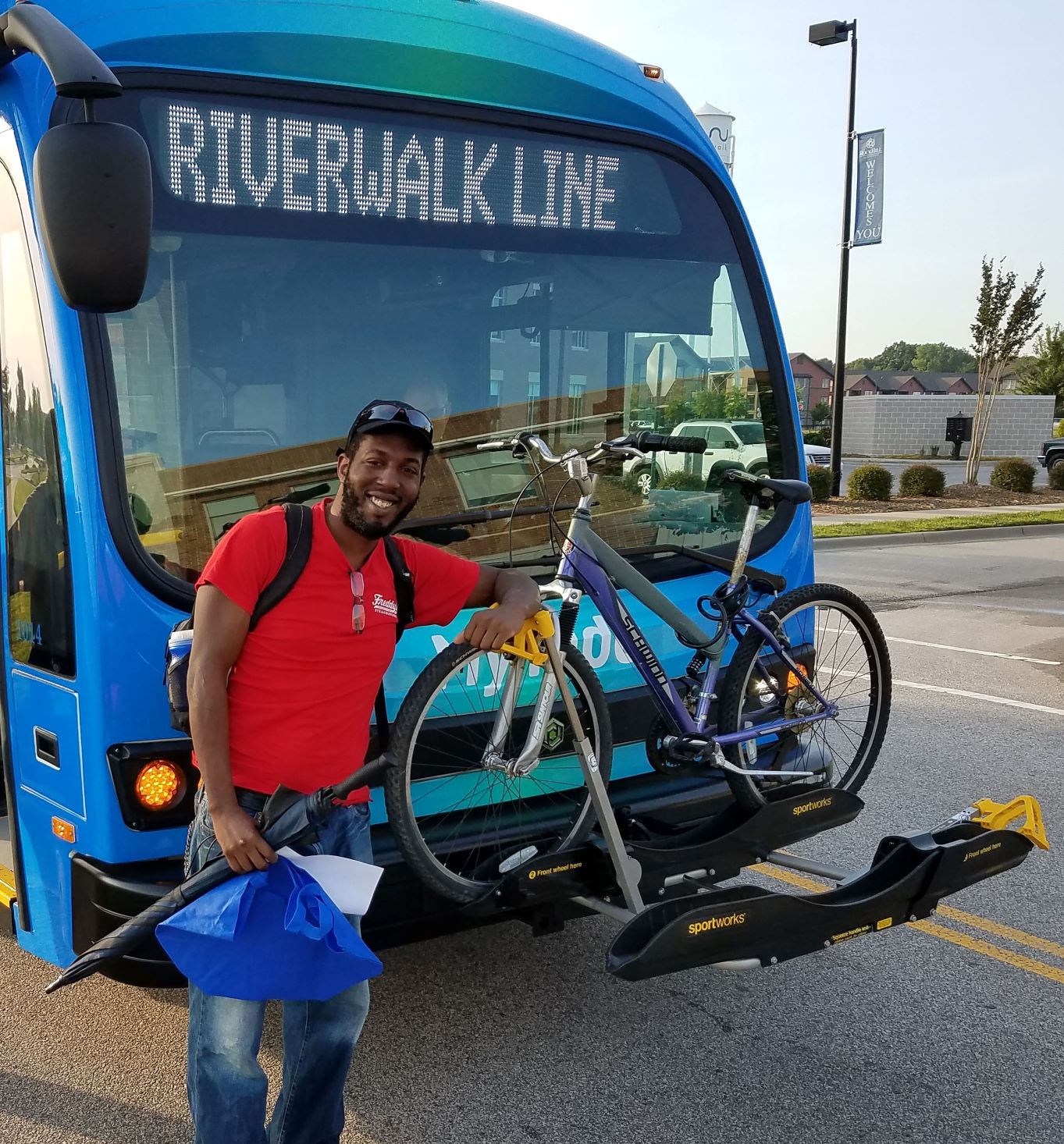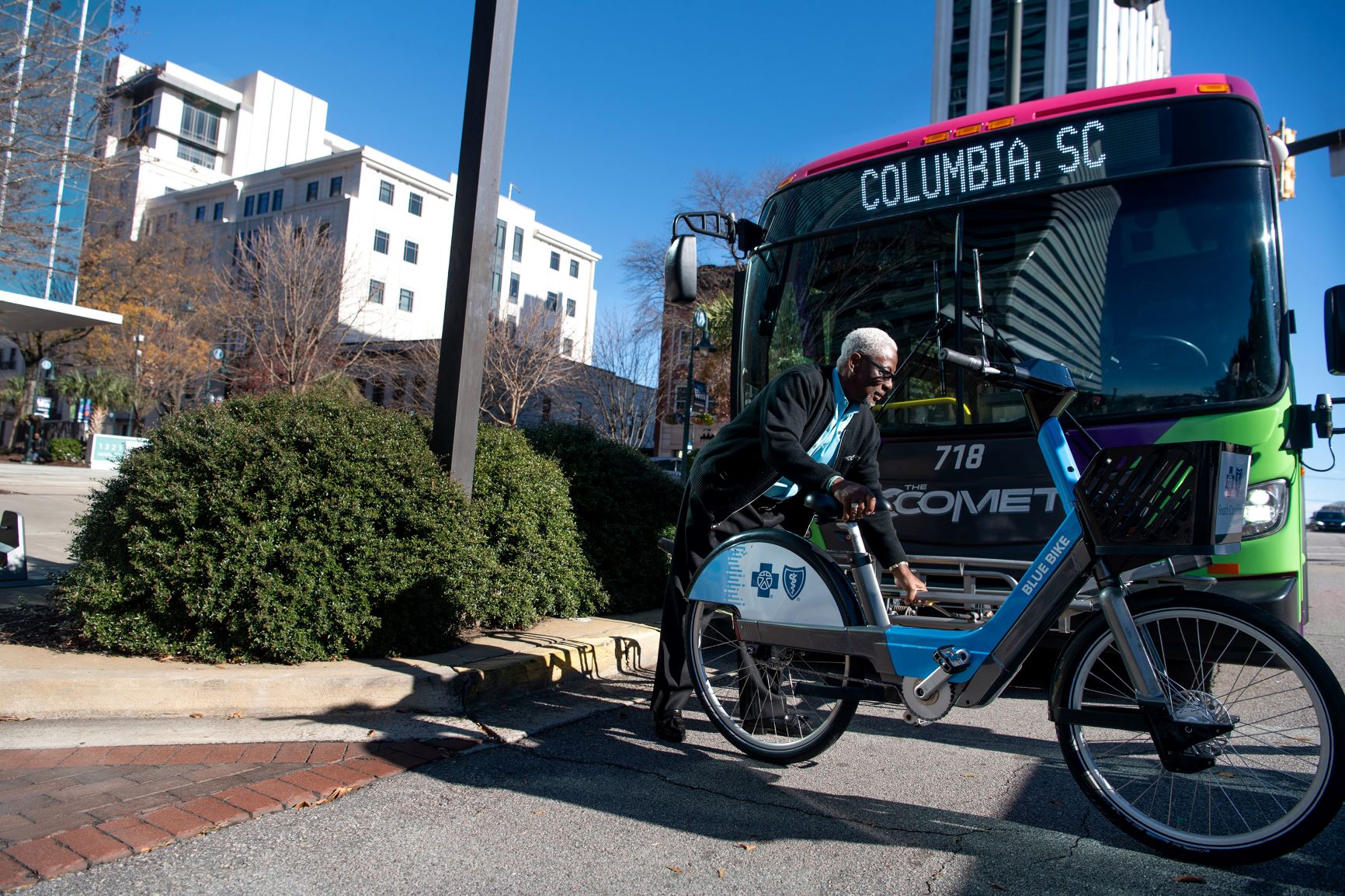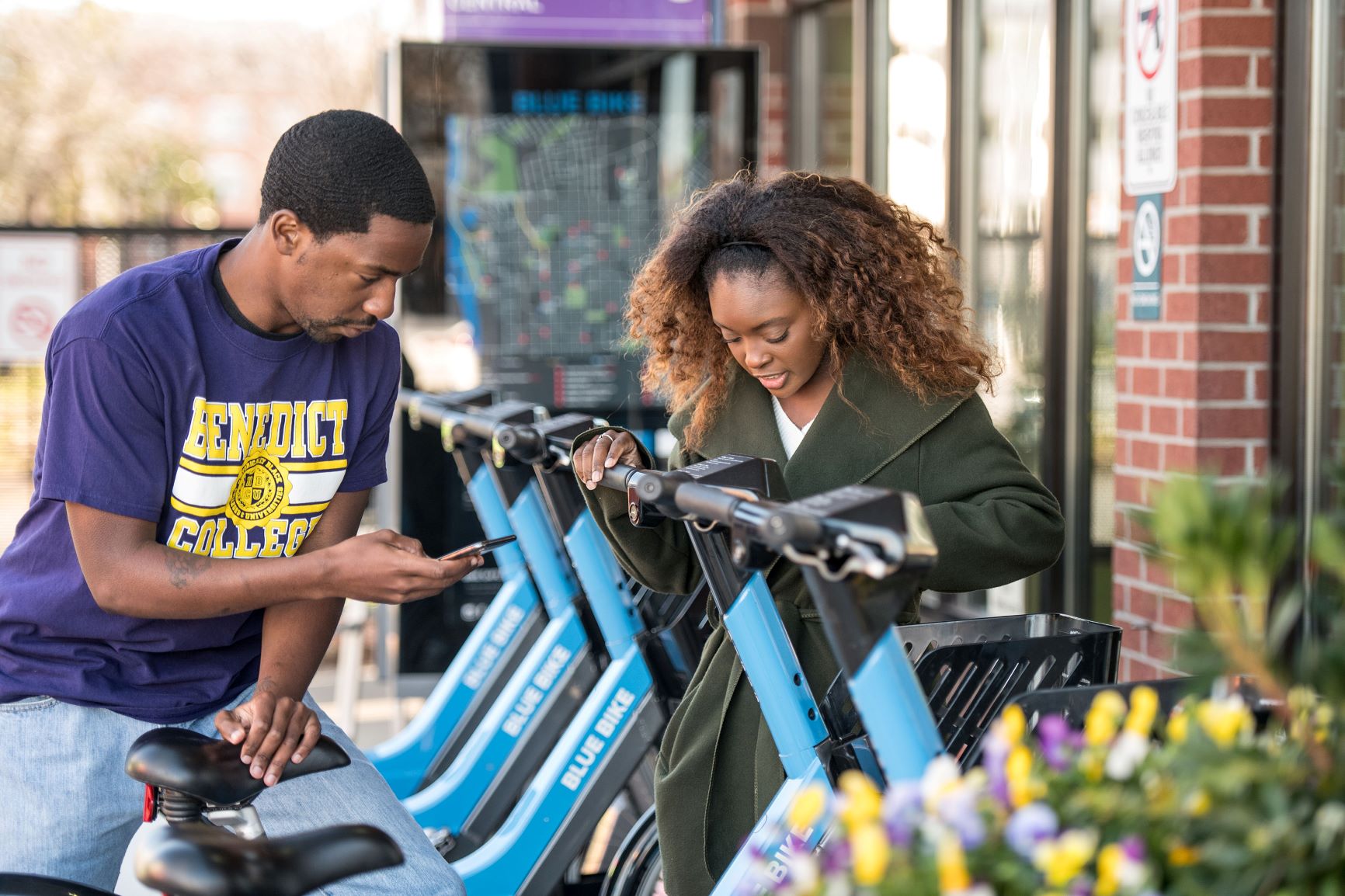Cities Find Creative Ways to Expand Public Transportation
In July 2019, after years of research and planning, Rock Hill became the state's first public transit system to start up from the beginning with all electric buses. My Ride Rock Hill uses seven Proterra buses running four routes along the city's main corridors. The buses, which have USB charging ports at every seat, free Wi-Fi, bike racks and infotainment screens, run 7 a.m. to 7 p.m. Monday through Saturday, and 9 a.m. until 5 p.m. Sundays.

My Ride Rock Hill launched with an all-electric fleet of buses in 2019. Photo: City of Rock Hill.
"We decided to start fare-free, using electric buses to be ahead of the transit curve," said Katie Quinn, communications manager for the City of Rock Hill. "For us, electric buses made good financial sense since they're less expensive to maintain over the life of the vehicle and environmentally friendly. The buses have no tail pipe and produce zero emissions. They're extremely quiet and look modern."
The city also decided to make the system free to ride, believing it was important to remove any barriers to transit — especially for those most in need of public transportation.
"Free service benefits lower-income members of our community," Quinn said. "Likewise, city council wanted to attract college students and visitors to ride the system, and making it easy to ride was the most effective way to do that."
The results? My Ride Rock Hill set a goal of 4,100 passenger rides a week by the end of its first full year. It passed that goal two months into service. Now, after just seven full months of service, it is averaging more than 5,000 passenger trips per week.
"The feedback we receive has been overwhelmingly positive. Riders constantly comment on the ease of use of the system, the friendliness of the drivers, and the great service My Ride offers them. Our partners — Winthrop University, Family Trust Federal Credit Union and Piedmont Medical Center — help us to promote My Ride to their employees, customers and students, and our social media engagement continues to climb," Quinn said.
In Rock Hill, like other cities around the state, finding ways to provide public transportation can be critical, particularly for people who live in areas of the city with limited access to health care and shopping. A group of Rock Hill residents identified transportation in 2015 as the greatest needed service in the city. In addition, a survey of Winthrop University students found 33% of students on campus didn't have a car, and prospective students were concerned about limited access to transportation.
College students, along with Upstate residents, are the main users for the Clemson Area Transit, or CAT Bus, system in Clemson. CAT is a public service provided fare-free by Clemson University, the cities of Clemson and Seneca, the towns of Central and Pendleton, the SC Department of Transportation and the Federal Transit Administration.
Seneca was the first municipality in the country to switch to an all-electric fleet in 2015, when it used a $4.1 million grant from the Federal Transit Authority to replace its diesel buses with five Proterra electric buses, along with adding charging stations and shelters. The city also used money from the South Carolina Department of Transportation's vehicle acquisition program and an FTA Livable Communities grant. The overall CAT Bus system has also purchased electric buses to use system-wide, as it transitions to a more environmentally friendly transit service.

In Columbia, COMET bus riders can get free 45-minute usage
of the Blue Bike SC bicycles. Photo: Sean Rayford.
Meanwhile in Columbia, the COMET bus system has partnered with the city's bikeshare program, Blue Bike SC, which has bikes available at 18 stations around the downtown area. The city partnered with Canadian-based bike share company Bewegen Technology to start the Blue Bike program, with Blue Cross Blue Shield of SC as the main sponsor. Riders of the COMET buses can show their bus pass to a driver and receive a code that can be used for a free 45-minute use of a bicycle.
"We wanted to address the first-mile-last-mile connection for our transit riders. This was a quick, simple way to provide additional mobility for those that are in downtown Columbia," said John Andoh, executive director of the COMET. "Sometimes when you get off a bus, you're still not at your destination. This is another way to get people closer to their destination."
Andoh said the bus-bike partnership started about a year ago. "We will do more marketing and outreach to ensure there's value in it for our transit riders. We need to be sure that people are aware it's available at no additional cost," he said.
He suggested that any municipalities looking to pursue a bikeshare program should plan to include the transit agency as a partner. Andoh also stressed the importance of the partner organizations working together on the agreement and on deciding where the bicycle docking stations are located.

Blue Bike SC has 18 bicycle stations around downtown Columbia. Photo: Sean Rayford.
The ability to help people get around in a municipality — to a doctor's office, a store or workplace — is the goal of public transit plans, which can also improve quality of life for a city's residents. In Rock Hill, Quinn described transportation as a core need that contributed to other problems, such as unemployment and homelessness.
"We regularly hear stories of people finding jobs or being free to travel after years of not having access," she said. "We've also heard from numerous social service agencies around Rock Hill thanking us for what My Ride has meant to their clients. Shortly after the start of full service, we heard from a men's shelter in the city that four of their clients were able to find jobs thanks to the reliable transportation that My Ride provided them."
And while it may be rare for a city to start a public transportation system today, Quinn believes the rewards are worth the cost.
"The best advice in general is to not be afraid to take the risk," she said. "By starting fare free, it's easy to use, drivers don't have to worry about checking fare cards, and transportation isn't a financial barrier."
